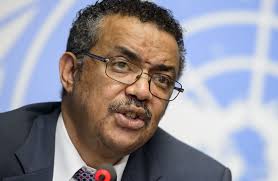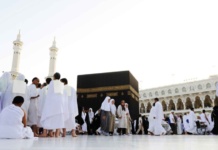Armed escorts will be required to protect vaccination teams as they battle to contain Ebola in the Democratic Republic of the Congo, the World Health Organization has warned.

The Ebola outbreak area in North Kivu province, classified as a level four security threat by the WHO – one of the highest set by the UN – comes amid local unrest including violence between rival militia groups.
The turmoil poses major challenges for those tasked with locating and vaccinating people who may have come into contact with Ebola victims.
“Even though we have access to the towns of Mangini and Beni, we don’t know to what extent we will be able to rely on armed escorts for broader contact tracing outside those small towns.
“That’s going to be a critical determining factor in our ability to respond,” said spokesman Tarik Jasarevic.
So far there have been 43 cases, of which 16 are confirmed; 34 people have died. The cost of the response, said the WHO, “is likely to be significant”.
The one piece of good news is that the Ebola strain has been confirmed as Zaire, which is the same as that in the previous outbreak in the west of DRC.
That means the vaccines, first trialled in Guinea towards the end of the massive west African outbreak, are likely to be effective – as long as medical teams can reach those who have come into contact with the sick to vaccinate them.
A team of vaccination experts from Guinea will be deployed to oversee “ring vaccination”. This method involves offering a shot to everyone who has been exposed to an Ebola case – family, friends and other contacts – setting up a ring of people who are hopefully immune around every case. Vaccination is expected to start this week.
Two planeloads of supplies arrived in Beni over the weekend, with cold chain equipment, isolation units and vehicles.
The vaccine needs to be stored in an “ultra cold chain” at -60 to -80 celsius, which is another major challenge, but that was expected to be operational on Tuesday, said the WHO.
The UN peacekeeping force in DRC, which has more than 20,000 personnel, is already playing a key role, while the WHO, Unicef, the World Food Programme, the International Federation of Red Cross and Red Crescent Societies and Médecins Sans Frontières also have people in Kinshasa or the area of the outbreak.
Treatment centres are being set up in Beni and Mangina, where safe burial grounds have also been established. Some of the teams who were deployed to Équateur province in the west have now been diverted to north Kivu.
Contact tracing is underway but needs to be expanded rapidly, said the WHO. So far 900 contacts have been registered in Mangina. A mobile lab has been set up in Beni.
The WHO’s director general, Tedros Adhanom Ghebreyesus, will travel to DRC on Thursday with his deputy, Peter Salama.
Kindly follow us on twitter:@AfricanVoice2










